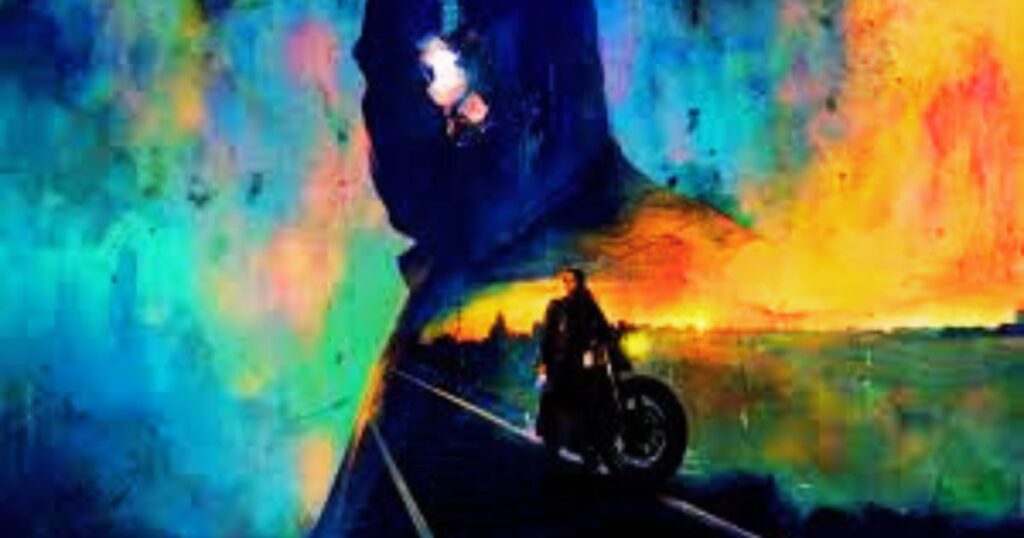Christopher Nolan as of late declared that the choice to enlist Robert Downey Jr. to play Tony Obvious in “Iron Man” was “one of the most considerable projecting choices that is at any point been made throughout the entire existence of the film business.”

Before this decade’s over, the equivalent may be said for the four entertainers who were simply given a role as the nominal superheroes in Wonder’s “The Phenomenal Four”: Pedro Pascal, Vanessa Kirby, Joseph Quinn and Ebon Greenery Bachrach. Like Downey, these entertainers have had late encounters with enormous financial plan creations — Pascal with “The Mandalorian” and “The Remainder of Us,” Kirby with the two latest “Mission: Incomprehensible” films, Quinn with “More peculiar Things” and Greenery Bachrach with “Andor.” Be that as it may, likewise like Downey, not a single one of them have featured their own studio activity blockbuster prior to joining with Wonder.
Downey, obviously, ended up being such a jolting presence as Iron Man that he impelled the Wonder Realistic Universe for the following 11 years, showing up in 10 motion pictures that have aggregately procured $12.5 billion in worldwide film industry earns before Unmistakable kicked the bucket in 2019’s “Justice fighters: Final plan.” From that point forward, Downey’s nonattendance has been intensely felt by Wonder fans, as has the deficiency of Chris Evans’ Skipper America, who likewise took his (conceivably) last bow in “Final plan.” Those two characters filled in as the yin and yang for the early MCU — Distinct the reckless, dashing virtuoso; Cap the robust, gee golly champion — that turned into the establishment’s gravitational focus. With the Watchmen of the Cosmic system separating, Tom Holland’s Bug Man and Chris Hemsworth’s Thor taking holidays, and the passings of Scarlett Johansson’s Dark Widow and, unfortunately, Chadwick Boseman’s Dark Puma, Wonder has been harming for characters who can act as the focal anchor for the best film establishment in Hollywood history. (With all due regard to Specialist Peculiar and Insect Man, they’ve generally worked best as powerful side dishes instead of the principal course.)
This new Awesome Four could be those characters, as they at long last step into the jobs on the big screen that they’ve been playing in comic books since Stan Lee and Jack Kirby originally envisioned them up in 1961, sending off the Wonder universe as far as we might be concerned today. Reed Richards (Pascal) and Johnny Tempest (Quinn) are like remixes of Distinct and Cap — Reed’s Mr. Phenomenal as the sturdy, gee golly virtuoso, Johnny’s Human Light as the reckless and dashing hero. Sue’s Undetectable Lady develops into one of the most noteworthy set-ups of abilities in the Wonder group, yet dissimilar to Skipper Wonder or Red Witch, she’s undeniably more grounded, with Earth-bound, regular worries. Furthermore, Ben Grimm (Greenery Bachrach) is strolling tenderness, a crude, easy going man stayed with the Thing’s apparently tremendous collection of orange stones — he’s Mass without the wild fury and Rocket without the standoffish cynicism.
Perusers of Wonder comics realize that these four characters have been necessary to the continuous Wonder universe — frequently at its actual focus. However, while the “Phenomenal 4” motion pictures of the 2000s (with Evans playing Johnny) have their charms, most would agree that Wonder’s Most memorable Family has never gotten the best in class highlight film transformation that they merit. (The less said about the 2015 reboot, the better.) Carrying them into the MCU is a mutual benefit: Wonder gets the focal characters it’s required, in addition to the Phenomenal Four get a true to life home deserving of their significance in Wonder history. It surely doesn’t hurt that Pascal, Kirby, Quinn and Greenery Bachrach are ridiculously gifted entertainers, by the same token.
What is most enticing about Wednesday’s declaration, nonetheless, is the manner in which Wonder went about it, with a lively delineation of the entertainers as their characters observing Valentine’s Day. From the retro title treatment, to the mid-century current ensembles and furniture, to the way that Ben seems, by all accounts, to be perusing an issue of Life magazine from December 1963, it appears to be certain that “The Fabulous Four” will be set during the 1960s.
More forthright, that proposes that “The Phenomenal Four” will exist in an equal universe separate from the center MCU — in the event that there was a group of room age superheroes who were counterparts of Peggy Carter and Howard Obvious, we likely would’ve caught wind of them at this point. All things being equal, Wonder seems, by all accounts, to be utilizing this film to give itself a strict new beginning, permitting crowds to stroll into this film without essentially having a lot of familiarity with the 50 or more MCU titles that will go before it.
Obviously, in the long run, the Phenomenal Four will join the primary MCU — doubtlessly in 2027’s “Vindicators: Secret Conflicts,” which (on the off chance that it follows the storyline from the 2015 comics run of a similar name) will include different equal universes slamming into one another. That could prompt a spic and span, semi-rebooted MCU with the Fabulous Four (and the X-Men, as proposed by the post-credits scene of “The Wonders”) at its middle.
